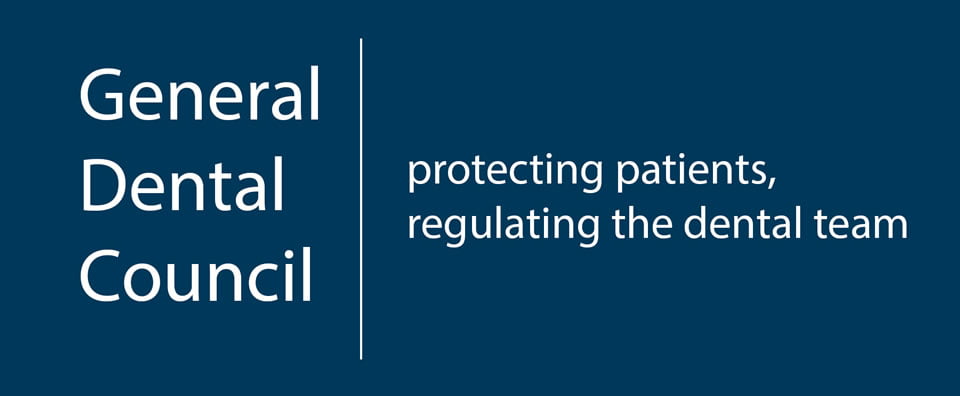The General Dental Council (GDC) is the regulatory body for dental professionals in the United Kingdom. It was founded in 1956 and is responsible for setting and enforcing professional standards, as well as managing dental registrations. It is an independent body, funded by fees from dental professionals.
The GDC sets and maintains high professional standards, and oversees education and training in dentistry. The GDC also investigates complaints about dental professionals, provides information and guidance to consumers and professionals about dental care, and maintains a register of dental professionals.
The GDC is an important part of the dental profession in the United Kingdom, and its work is vital to maintaining high standards and protecting patients. Dental professionals should familiarize themselves with the GDC’s policies and procedures, and ensure that they are in compliance with them. By doing so, they can help maintain the reputation of the dental profession and uphold the trust of patients.
General Dental Council: Goals and Objectives
The GDC has a number of strategic goals, including promoting public health, protecting patient safety, and promoting the highest standards of professionalism. In order to achieve these goals, the GDC engages in a range of activities, including monitoring practice performance, providing education and training, and investigating complaints.
The GDC is also responsible for setting the standards of dental care that must be met by all registered dental professionals. These standards are designed to protect the public and ensure that patients receive high-quality, safe care. All registered dentists and dental nurses must comply with the GDC’s standards, and those who do not can face disciplinary action.
The GDC is also committed to being transparent and accountable to the public. It publishes an annual report, which includes information on the number and nature of complaints received, the outcomes of investigations, and the education and training activities undertaken. The GDC also engages with patients and the public through meetings, surveys, and social media.
The GDC is a valuable resource for dental professionals and patients alike. By familiarizing themselves with the GDC’s policies and procedures, professionals can help maintain the reputation of the dental profession and uphold the trust of patients. Patients can feel confident that their safety is being prioritized by the dental profession when they see that their practitioners are registered with the GDC.
GDC Registrant Types
There are two broad categories of GDC registrants: dentists and dental care professionals.
Dentists
Dentists are qualified to practice general dentistry. There are also five sub-categories of dentists:
- General dental practitioners
- Specialist dental practitioners
- Dental surgeons
- Oral and maxillofacial surgeons
- Dental anesthesiologists
Each type of dentist has different requirements for registration, which can be found on the GDC website. The GDC also publishes a list of all registered professionals, as well as their professional status (active, suspended, or struck off).
Dental care professional (DCP)
Dental care professionals are qualified to provide dental care but are not authorized to perform any procedures that require the use of a drill. This includes dental nurses, hygienists, and therapists.
General Dental Council Activities
The GDC oversees a number of activities, including:
- The registers – Administering examinations for registering dentists and dental students
- Fitness to practice and Illegal practice – Setting and enforcing professional standards
- Education and training – Approving dental schools and courses given the commitment to ensure quality assurance of dental education and training for the primary purpose of patient protection
- Complaints – Handling complaints about dentists and dental students
- Investigations – Carrying out investigations into concerns about the practice of dentistry
- Discipline – Taking action against registrants who have breached GDC standards. The GDC also provides information and guidance on a range of topics, including consent, patient confidentiality, and infection control.
- Investigating complaints about dental professionals
- Providing information and guidance to consumers and professionals about dental care
- Research and policy – Contributing to dental research and influencing dental policy
- Working with dental professionals and students
Teeth Whitening and Illegal Practices
The GDC is very clear on who are not qualified to offer teeth whitening services. In order to protect the public, the GDC has a clear stance on what is and is not an acceptable practice when it comes to teeth whitening.
The GDC’s position on teeth whitening is that it should only be carried out by a dentist or someone supervised by a dentist. This is because there are risks associated with teeth whitening if it is not carried out safely. For example, using the wrong bleaching agent could lead to damage to the teeth and gums.
There are some people who offer teeth whitening services illegally. This means that they are not qualified to do so and may not be following any safety procedure. The GDC gives examples such as a beautician or an company claiming to be insured and offering teeth whitening treatments.
By law only registered dentists, dental therapists and hygienists working to the prescription of a dentist can legally provide tooth whitening treatment.
GDC And Direct-to-Consumer Orthodontic Treatments
Since the GDC was granted its statutory functions in 2006, it has been responsible for regulating a number of dental treatments. This has included direct-to-consumer (DTC) orthodontic treatments.
The introduction of DTC orthodontics has been controversial, with some providers and consumers arguing that it should be unregulated. The GDC has taken a clear stance on this, stating that all DTC orthodontic treatments must meet the same high standards as those provided in clinic by a registered dentist or dental professional. This is because all these services are strictly considered under the field of dentistry.
GDC and European Rules on Whitening Treatments
The Cosmetic Products (Safety) Amendment Regulations 2012 implementing the European Union’s 2011/84 cosmetic product safety directives were revoked and replaced with new regulations in 2013. These laws require all companies selling beauty products or intended for professional use to be approved by an authority before they can go on sale, among other things like designs that might cause allergies.
The law surrounding tooth whitening has not changed and it’s still illegal for those products that contain more than 6% hydrogen peroxide or any associated releasing greater than six percent to be supplied into cosmetic purposes.
Other rules relating to teeth whitening highlighted by the GDC in its Tooth Whitening Position Statement are as follows:
- Products containing or releasing between 0.1% and 6% hydrogen peroxide cannot be used on any person under 18 years of age except where such use is intended wholly for the purpose of treating disease in a manner that has been approved by an accredited veterinarian, dentist etc., with due care being exercised at all times so as to avoid injury from exposure which may result thereof death.
- The use of products containing or releasing less than 0.1% hydrogen peroxide is safe and will continue to be freely available on the market, including mouth rinse, tooth paste/tooth whitening or bleaching lotion etcetera.
- The rules relating to the use of tooth whitening or bleaching products where the hydrogen peroxide content falls between 0.1%-6% of are as follows:
- It is important to conduct a clinical examination of the patient’s mouth in order ensure there are no risk factors or other oral pathology concerns.
- Exposure to these products should be limited in order that they can only be used for their intended purpose of frequency and duration.
- This means that the products should not be directly available to consumers, instead they must go through a dentist or dental therapist/ technician.
(This is reviewed in detail in our Full Discussion on Why Crest Whitestrips Are Banned In The United Kingdom)
Committees Within The General Dental Council
- Investigating Committee
- Interim Orders Committee
- Professional Conduct Committee
- Health Committee
- Professional Performance Committee
- Registration Appeal Committee
- Appointments Committee
- Audit and Risk Committee
- Finance and Performance Committee
- Remuneration & Nomination Committee
- The Chair’s Strategy Group
Corporate strategy 2020-2022: Right Time, Right Place, Right Touch
The GDC branded its corporate strategy for the period 2020 to 2022 as “Right Time, Right Place, Right Touch”
The strategy has four objectives
- Deliver excellent services to dental professionals and patients
- Support the dental team to deliver high-quality care
- Strengthen our governance and regulation
- Build a sustainable organisation
To achieve these objectives, the GDC will focus on five key areas:
- People
- Technology
- Data and insight
- Partnerships
- Processes
General Dental Council Affiliations With Other Organisations, Regulators and Bodies
The General Dental Council has several formal agreements with bodies representing patient care and healthcare professionals, which set out how they work together for the benefit of patients and dental professionals.
The General Dental Council has a Memorandum of Understanding (MOU) with the Care Quality Commission (CQC), which sets out their commitment to working together to ensure that patients receive safe, high-quality care. The MOU covers a range of areas, including:
- sharing information and intelligence about providers
- joint training and awareness-raising activities
- working collaboratively to assess providers’ compliance with regulations
The GDC also has a formal agreement with the Dentists’ Health Support Trust (DHST) which is a government-funded organization that provides free advice and support to dental professionals on alcohol, drugs or eating disorders through the Dentists’ Health Support Programme (DHSP).
The GDC has had agreements in place with the NHS England since 2015.
GDC Resources for Dental Professionals
- Direct-To-Consumer Orthodontics
- GDC Position Statement on Tooth Whitening



